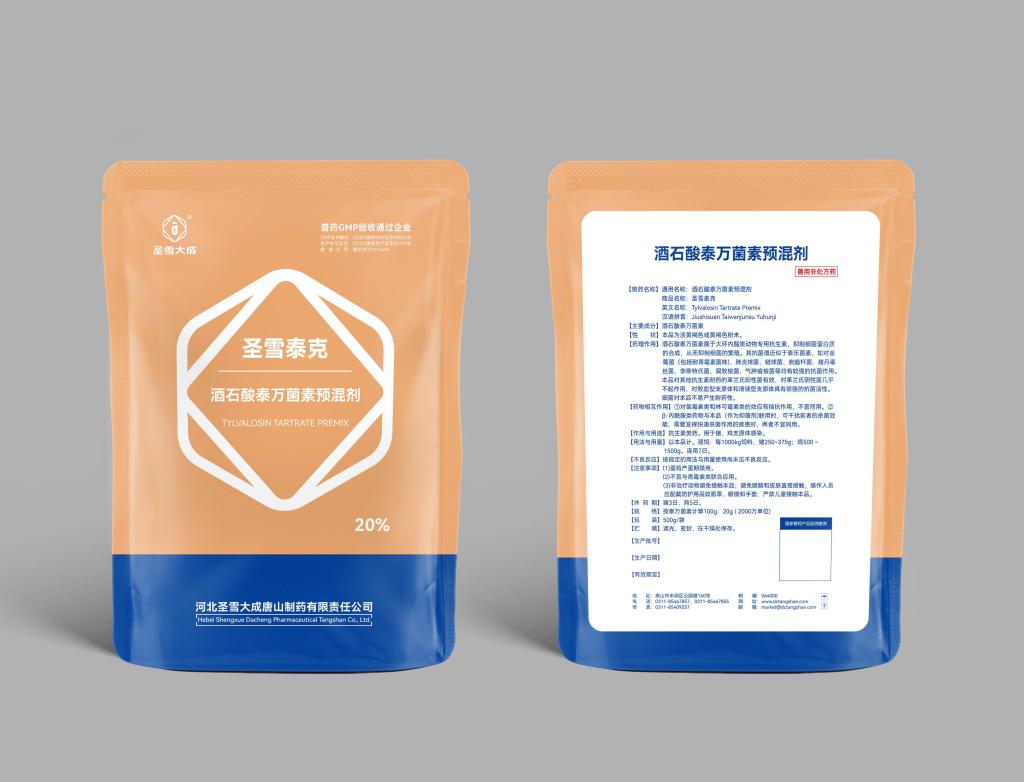Tel:+8618231198596

News
 CONTACT
CONTACT
 CONTACT
CONTACT
- Linkman:Linda Yao
- Tel: +8618231198596
- Email:linda.yao@dcpharma.cn
- Linkman:CHARLES.WANG
- Department:Overseas
- Tel: 0086 0311-85537378 0086 0311-85539701
News
Farmers integrate tylvalosin tartrate premix into their overall disease prevention strategies.
TIME:2024-09-04
The Importance of Disease Prevention in Livestock Management
Disease outbreaks can have devastating effects on livestock operations, leading to significant economic losses due to reduced productivity, increased mortality, and higher treatment costs. Furthermore, there are non-economic impacts, including ethical concerns about animal welfare. Thus, proactive disease prevention is not only economically prudent but also ethically responsible.
Role of Tylvalosin Tartrate Premix
Tylvalosin tartrate is a versatile antibiotic known for its efficacy against a wide range of pathogens that commonly affect livestock. Its premix formulation facilitates easy and uniform distribution within animal feed, ensuring that all animals receive the necessary dosage to prevent or treat infections. This approach is particularly useful during periods of heightened stress, such as weaning, transportation, or mixing of different groups of animals, when the risk of disease transmission increases.
Key Benefits of Incorporating Tylvalosin Tartrate Premix
Prophylactic Protection: Regular inclusion of tylvalosin tartrate in feed can help prevent the onset of certain bacterial diseases, reducing the likelihood of outbreaks and the need for more extensive treatments later.
Treatment of Existing Conditions: In cases where infection has already occurred, tylvalosin tartrate can be effective in treating affected animals, helping to limit the spread of disease and promoting faster recovery.
Improved Animal Welfare: By reducing the incidence of illness, farmers can enhance the quality of life for their livestock, ensuring that animals remain healthy and less stressed, which is crucial for both ethical reasons and productivity.
Economic Viability: Preventive measures, including the strategic use of antibiotics like tylvalosin tartrate, can save on costly treatments and reduce the financial impact of lost productivity due to sickness.
Strategic Integration into Farm Practices
For tylvalosin tartrate premix to be part of a successful disease prevention strategy, it must be integrated thoughtfully into a broader framework that includes:
Biosecurity Measures: Implementing strict biosecurity protocols to minimize the introduction and spread of pathogens.
Regular Monitoring: Consistent monitoring of herd health to detect early signs of illness and respond promptly.
Veterinary Consultation: Collaborating with veterinarians to tailor antibiotic use to the specific needs of the farm and the herd.
Responsible Antibiotic Use: Ensuring that antibiotics are used judiciously to avoid contributing to antimicrobial resistance.
Conclusion
The integration of tylvalosin tartrate premix into comprehensive disease prevention strategies represents a proactive step towards maintaining the health and productivity of livestock. By adopting a holistic approach that includes this and other preventive measures, farmers can create resilient systems that protect their investments, promote animal welfare, and contribute to the sustainability of agricultural practices.
- Tel:+8618231198596
- Whatsapp:18231198596
- Chat With Skype







